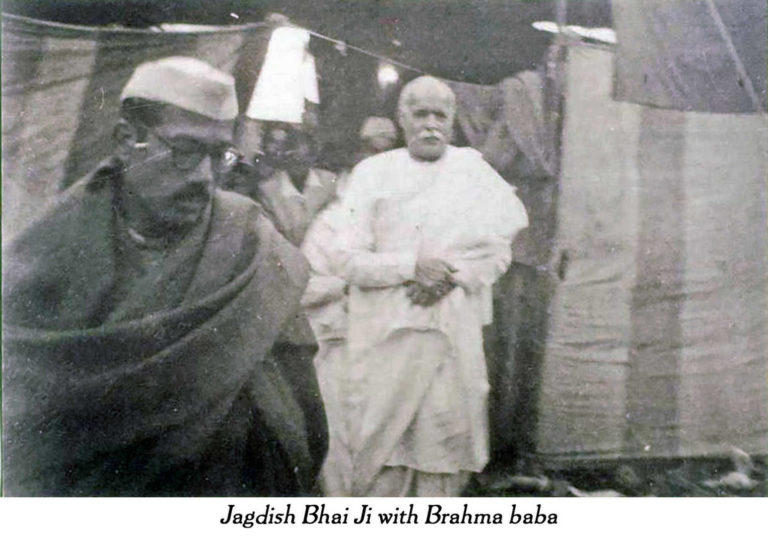
भगवान हमारा साथी है
हम हृदयंगम करते (दिल से कहते ) हैं कि भगवान हमारा साथी है। भगवान हमारा साथी बना, उसने कब, कैसे साथ दिया यह अनुभव सबको है। एक है सैद्धान्तिक ज्ञान कि अपने हाथ परमात्मा के हाथ में दो। उसके प्रति

In my own lifetime, I have seen and met persons, who rose to the pinnacle of glory. Among these were great scholars whose memory was stupendous and stock of information and learning almost encyclopaedic; there were orators, who kept their listeners spellbound for five or six hours without break; there were war generals, who had commandeered vast armies over the whole continent during the second world war; there were political leaders, who had a special charisma in their personality and who wielded power and swayed over hundreds of millions of people; there were actors or musicians, who enthralled and captivated the hearts of their countless admirers so much that the crowds gathered in no time to have a glimpse of them wherever they went; there were religious preachers, who quoted copiously O GOD! GRANT ME HUMILITY and meticulously from a vast array of scriptures; there were philosophers whose thinking was very deep and understanding; their subject was very profound. There were historians whose vision covered a vast canvas of the past and whose views of the past were penetrating and ideas about the future almost prophetic.
To be brief, among this galaxy of great men, there were people of amazing excellence and rare merit. They had won high laurels and had carved a niche for themselves. Besides these, there were thousand others, who were towering figures in their own respective fields or disciplines whom I had no chance or occasion to meet personally but I read about some of them in contemporary literature and periodicals of the time or heard about them from my friends.
These and hundreds and thousands more form just a very small fraction of the total number of men and women of excellence during the last half a century, and if I see these people in the vast panorama of world history – history of civilizations, history of science, history of philosophy, history of arts, etc. – the number of great people whom I met personally would be insignificant indeed.
Each one of the eminent persons, whom I had the chance to meet, left different impressions on me. (This is true of those persons also about whom I read about in books.) This was only natural because each one of them had their own individuality, personality, traits and mannerisms. It also mattered what aspect of personality of the great man I paid attention to, and this later, in turn, depended on what my own state of mind was when I met any of them or read about some others.
However, one thing that impressed me universally was that these great men had an indomitable spirit, a strong will, a high power of resistance that withstood the oppositions and the obstacles. They carried on their efforts with persistence, perseverance, and rare clarity. Moreover, they were able to arrange facts and findings in such a manner that these yielded useful conclusions; or they had the ability to organise men and resources in such a way that they attained targets or goals set by them. They could plan things ahead of time as they had keen foresight.
But this is only half-truth. For, besides their abilities, there was always the chance factor that led them to discoveries, inventions or eminent positions. The chance factor has been a very potent factor in the history of nations as well as individuals. One may call this ‘Destiny‘, ‘Drama‘, ‘Predestination’ or by any other name; but this has always been there.
Circumstances in their homes, events in their country, happenings in their vicinity or situations in the world of their time were such that they stirred these men into play or provided them with an opportunity to come on to the stage and into the limelight. Remove these ‘chances’ and you would find that these colossi of men were only ordinary or mediocre mortals. This is, however, not to underrate their talents, their abilities and their worthy achievements. These men, no doubt, put in hard efforts; but what is meant to be emphasised is that their efforts and abilities only partially explain their success. I have seen men fall from grace and have read of men, who, later in their life, faded into oblivion or lost all charisma, glory and power when time and circumstances substantially changed. Some of these men have themselves said in their speeches or writings that chance has been a major factor that led them to the summit of success.
When I look at these men from this angle and take proper notice of their fate in the end, I come to the conclusion that there is very little justification for man’s pride. What these men were in their old age, or before their death, or when they were dethroned from high pedestal of power or became infirm, diseased or helpless, is a lesson, which is generally lost sight of in the plethora of details. If we weigh man’s achievements in one or more fields against his errors and failures in other fields, the balance sheet forms no rational base for man’s ego. The plus-points might have at best been slightly higher than the minus-points; but, though the matter has been a cause for jubilation and enthusiasm, it has not been an occasion for arrogance. It goes, therefore, to the credit of those among them, who were not touched by any vanity.
Another thing that I noticed was that when any of the eminent men gave up their bodies, there were condolence messages from national and world leaders and there were obituary references about them in the press or by persons and institutions with whom they had worked. These were revealing in a way for what different people said about them after their death, was more often different from what these people had said of them during their life-time, particularly when the man was hyperactive and, thus, stirred the feelings of jealousy in the minds of others, who were in race for power and position. This is another aspect of greatness. Strange indeed!
The world of great men has been a huge mosaic or a multifaceted and multi-coloured vista to me. From Alexander the Great to Duke of Wellington, Napoleon, Lord Montgomery, Lord MountBatten, General McArthur and General (later president) Eisenhower; from Moses, Confucius, Buddha, Christ and Zoroaster to St. Augustine, St. Francis of Assisi, and a host of other saints; from Angoras, Pythagoras, Kapil, Vyas, Patanjali, Jaimini, or from Aristotle, Plato, Socrates and Stoics to Thomas Aquinas, Descartes, Hegel, Kant, Karl Marx and Nietzsche and many others; from Vyas, Valmiki, Homer and Kalidas to Shakespeare, Bernard Shaw and many other litterateurs; from Euclid, Archimedes, Copernicus, Kepler, Galileo, Hippocrates, Newton, Arkwright, Gutenberg, Marconi, Mendel, Pasteur to Max Planck, Einstein and others; from Michael Angelo, Monet Claude, Picasso, Leonardo DaVinci to great artists of the day it has all been a saga of talents in one form or the other. And yet this list does not mention thousands of such others. But I, sometimes, ask myself whether these luminaries had understood the cosmos, realised the self, had known God and had attained the goal of life? Did they feel content as to the mission of their life? Had these giants among men attained full satisfaction and felt that the secrets of Nature – inner and outer lay unto them like an open book? When they left their mortal coils, did they feel that they had a clean chit with them?

हम हृदयंगम करते (दिल से कहते ) हैं कि भगवान हमारा साथी है। भगवान हमारा साथी बना, उसने कब, कैसे साथ दिया यह अनुभव सबको है। एक है सैद्धान्तिक ज्ञान कि अपने हाथ परमात्मा के हाथ में दो। उसके प्रति
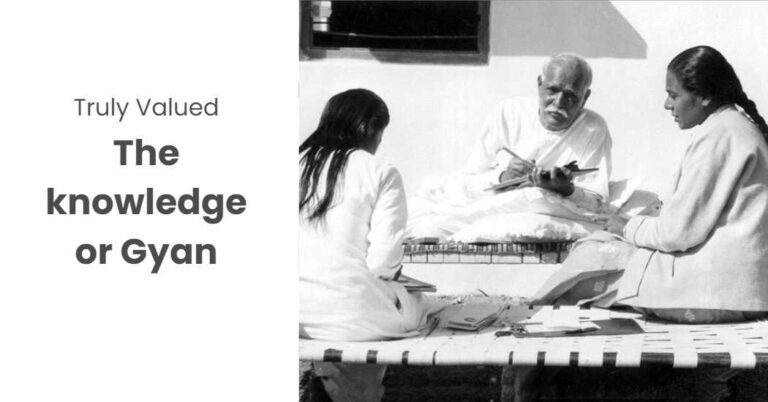
So invaluable was Godly knowledge to Baba that he had given clear instructions that the literature thereon should not be sold, for selling according to him simply meant putting a price on it, while, in fact, it was too precious
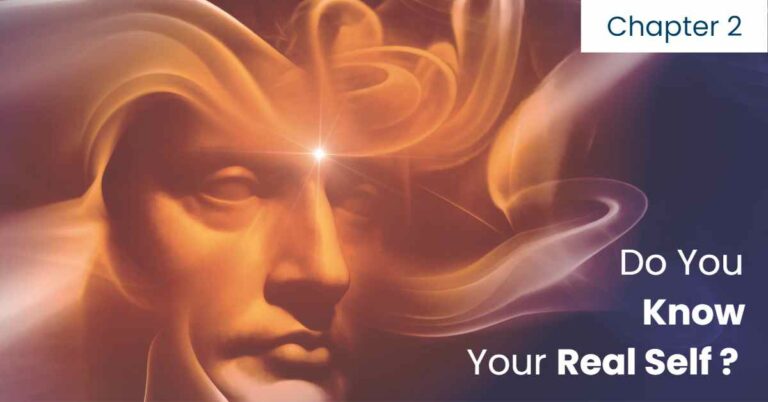
Chapter 2 Consciousness in the light of the views of some other philosophers Earlier, we have had a brief overview of some systems of Indian Philosophy such as The Sãmkhya, The Nyãya, The Vaisheshika, etc. We made very quick and

The Art of Soul Consciousness: Embracing Positivity in Others Welcome to The Sweet Soul World Ten thousand DVDs around me! How do I tell one Digital Versatile Disc apart from the other? Do I need to? The same virtues are
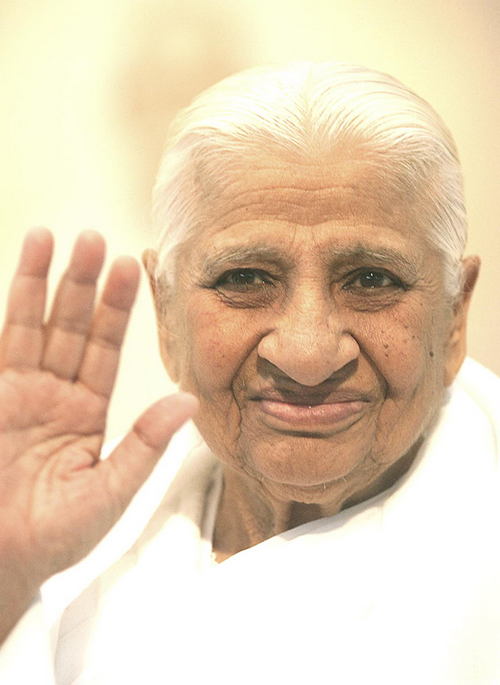
“दादी प्रकाशमणि जी की विशेषतायें “ हम सबकी अति स्नेही ब्रह्माकुमारी ईश्वरीय विश्व विद्यालय की पूर्व कुशल मुख्य प्रशासिका दादी प्रकाशमणि जी ने अपने अलौकिक जीवन की छाप अनेक ब्रह्मा वत्सों पर डाली है, जिन्होंने भी दादी जी की पालना

Calming the Storm: Navigating Anger through Faith Patience Please! “Here I am writing you letters of warning and there seems to be no effect on you” she yelled at the top of her voice. “This is nothing compared to what

The day 31st May is celebrated as “World No Tobacco Day”. Hence today, let’s understand the scientific and spiritual aspects of overcoming addictions. What is an addiction? Addictions are of different kinds. Addiction to substances such as tobacco, alcohol, drugs

हर वर्ष भारत में जन्माष्टमी के दिन श्रीकृष्ण का जन्मोत्सव बड़ी धूमधाम से मनाया जाता है। हरेक माता अपने बच्चे को नयनों का तारा और दिल का दुलारा समझती है, परन्तु फिर भी वह श्रीकृष्ण को सुंदर, मनमोहन, चित्तचोर आदि
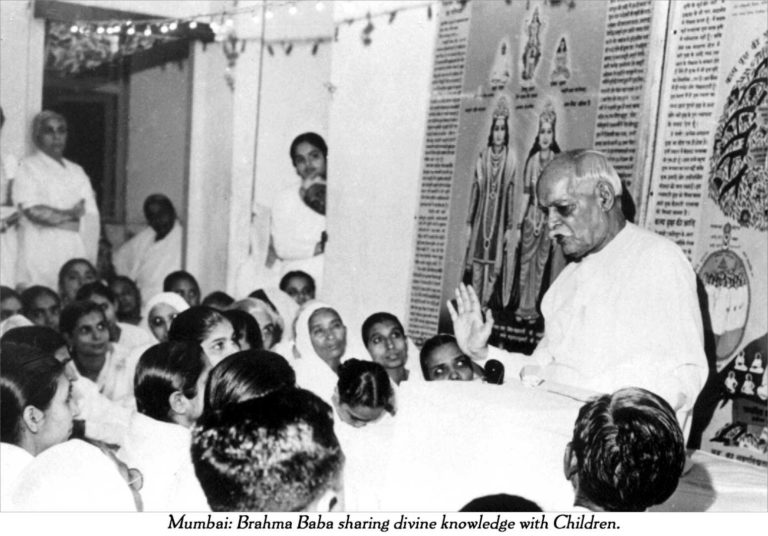
Whilst in Karachi, Brahma Baba taught knowledge to the growing family of children, teaching through example as much as through precept. And with the power of meditation (yoga), the souls who had faith in God were going ahead remarkably, attaining
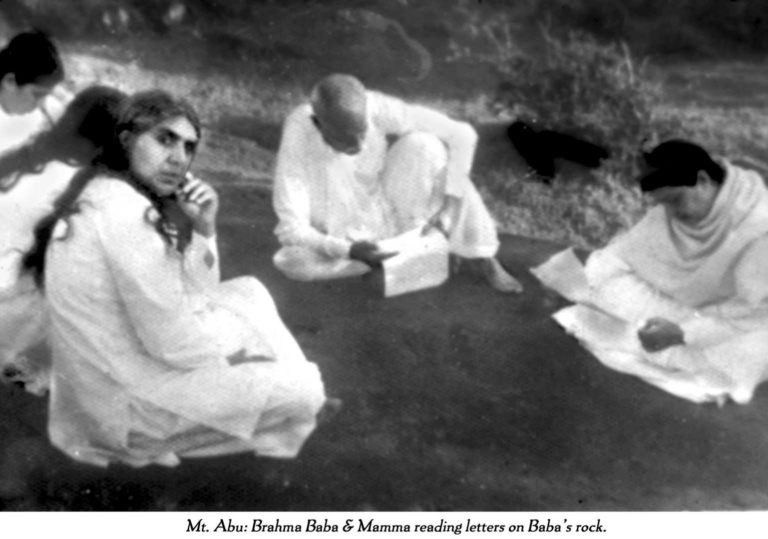
Dada Lekharaj was born in a village in Sindh Hyderabad, now Pakistan. He had a spiritual bent of mind. Due to his hard work and dedication, he rose to become a diamond merchant. His business was located in Calcutta. However,
Start your day with a breeze of positivity and stay motivated with these daily affirmations
After Clicking on Join, You will be redirected to Whatsapp Community to receive daily message. Your identitiy will be secured and no group member will know about another group member who have joined.